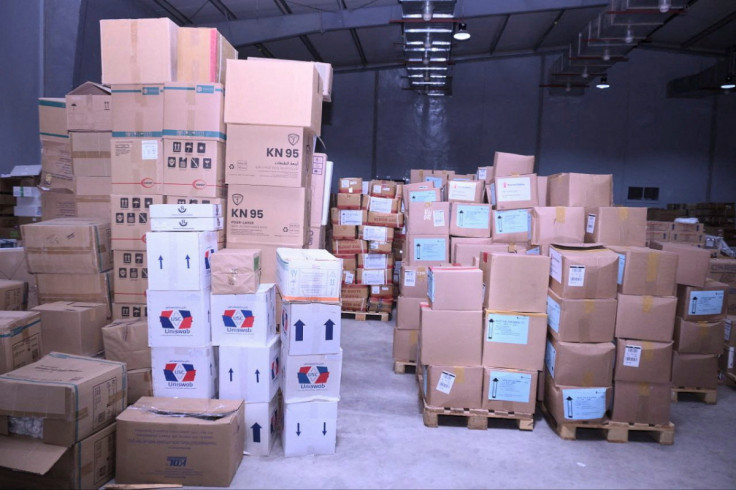Retail warehousing vacancy rates in the UK continue to decline
The UK retail warehousing sector is witnessing a decline in vacancy rates as retailers capitalise on the availability of second-hand items resulting from administrations and CVAs.

The retail warehousing sector in the UK is experiencing a trend as vacancy rates continue to decrease, according to recent data from Trevor Wood Associates (TWA).
This decline in vacancy rates is attributed to retailers seizing opportunities to expand their operations by capitalising on the availability of second-hand items in the market resulting from administrations and Company Voluntary Arrangements (CVAs). Major retailers such as Aldi, Lidl, Iceland and Poundland are among those making significant investments in retail warehousing space, reflecting their confidence in the sector's growth potential.
According to the TWA data, retail warehousing vacancy rates in the UK continues to fall in Q2 2023. Vacancy rates were 5.4 per cent at the end of Q2, compared to 6.1 per cent at the start of the year and 5.8 per cent at the end of Q1 2023. TWA attributed the "significant fall" to retailers taking advantage of second-hand items coming to market as a result of administrations and CVAs.
Retail giants like Aldi, Aldi, Lidl, Iceland, The Food WAREHOUSE and Farmfoods have all expanded their retail warehousing space in the UK this year. Aldi has secured 237,000 square feet of retail warehousing space this year, Lidl has opened more than 170,000 square feet outside of town and Iceland, The Food WAREHOUSE and Farmfoods have added more than 65,000 square feet to their existing portfolios.
Other major retailers like B&M have added or committed to adding 16 units this year, The Range has added 118,000 square feet this year, Home Bargains has added 19 units and Poundland has built (or will open) another 215,000 square feet of retail warehousing space.
Additionally, the leisure and retail sectors have shown interest in retail warehousing space for experiential purposes. Tenpin is set to debut in Chester Retail Park and Kingsway West Retail Park in Dundee later this year, as experiential retail and leisure operators continue to snap up retail warehousing space. Pure Gym will also build over 273,000 square feet of floor space in 2023.
Liz Williamson of Trevor Wood Associates stated that since the end of 2022, with even less development taking place, second-hand supply has meant the vacancy rate of open A1 non-food units has dropped to 6.3 per cent from 7.3 per cent.
She also stated that 2.9 million square feet of property are currently available, with another 684,000 square feet designated for non-retail redevelopment, implying that the percentage of space genuinely available to let might be as low as 3.6 per cent.
Meanwhile, Savills' latest Market in Minutes report revealed early this year that buyers are returning to the UK's retail and industrial warehouse sectors, with yields for these assets again under pressure as investor confidence rises. According to Savills, industrial yields are currently hovering around five per cent and appear to have bottomed out, with competitive bidding now returning from a wide buyer pool, including investors who were less active at the end of 2022 – particularly UK funds and institutions – beginning to re-emerge with active buy-side requirements. This is underpinned by a solid labour market, positive rental growth projections and low vacancy rates, all of which contribute to steady capital values.
Savills further stated that a significant number of investors have returned to the retail warehouse sector in search of long-term income returns, as the market has benefited from a stronger-than-expected Christmas period and a 1.5 per cent rise in rents through 2022. A lot of investors are eager to sell, however, Savills reported that sales were low in Q1 2023, owing to demand outstripping supply, particularly for premier assets and those in the southeast. Currently, yields range between 5.5 per cent and six per cent.
Richard Merryweather, Joint Head of UK Commercial Investment at Savills, explained that after a period of cautiousness by the majority of investors, there has been a notable uptick in confidence and buyer enquiries in the industrial and retail warehouse sectors. Competitive bidding, he noted, is returned for the proper product, and yields are anticipated to harden.
Although, volumes will likely remain stopped for the next few months due to a lack of goods. With more market uncertainty in the office sector, it has taken longer to establish where pricing is, but there is now more investor interest, due to higher yields.
© Copyright IBTimes 2025. All rights reserved.






















